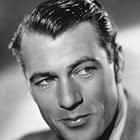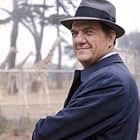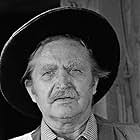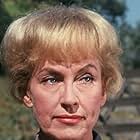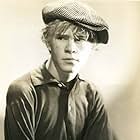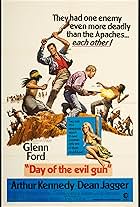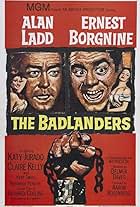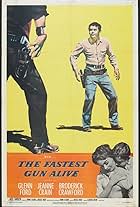Unusual western about a doctor with a dark past, whose life is complicated and ultimately redeemed by a young thief, and a pretty Swiss immigrant whom he nurses back to health.Unusual western about a doctor with a dark past, whose life is complicated and ultimately redeemed by a young thief, and a pretty Swiss immigrant whom he nurses back to health.Unusual western about a doctor with a dark past, whose life is complicated and ultimately redeemed by a young thief, and a pretty Swiss immigrant whom he nurses back to health.
- Nominated for 1 Oscar
- 1 win & 4 nominations total
Emile Avery
- Townsman
- (uncredited)
Fern Barry
- Mother
- (uncredited)
William 'Billy' Benedict
- Trapper
- (uncredited)
Oscar Blank
- Townsman
- (uncredited)
Danny Borzage
- Dan
- (uncredited)
Annette Claudier
- Dance Hall Girl
- (uncredited)
Tex Driscoll
- Townsman
- (uncredited)
Martin Eric
- Father
- (uncredited)
Frank Hagney
- Townsman
- (uncredited)
- Directors
- Writers
- All cast & crew
- Production, box office & more at IMDbPro
Storyline
Did you know
- TriviaThe last western in which Gary Cooper starred.
- GoofsThe dresses have zippers, especially obvious when Elizabeth's dress is shown from the back and is partly unfastened. Zippers weren't used in the 1870s.
- Quotes
Townsman in wagon: [Reassuringly to wife] Every new mining camp's got to have its hanging tree. Makes it feel respectable.
- ConnectionsEdited into Meine Schwester Maria (2002)
Featured review
No need to recap the sprawling plot.
For a western, the movie is generously produced. The Washington state locations are scenic as heck and a great backdrop to the rushing crowds and boisterous miners. In fact, the gold camp recreation is one of the most realistic I've seen. Then too, the production has one of the most underrated directors of westerns of the period, Delmer Daves, whose list includes such classics as 3:10 to Yuma (1957), Jubal (1956),and the generally overlooked Cowboy (1958). All of these are tightly written and efficiently directed little gems.
But I have to say that despite the first-rate production values and a first-rate cast, this more epic sized western doesn't achieve the impact of Daves' smaller movies. The problem is a loose script and a dawdling camera that stretches out the dramatics and the movie's length to a sometimes tedious degree. I'm guessing that Warner Bros. wanted a production equal to Gary Cooper's iconic standing. I suspect they were also promoting newcomer Schell's career, and thus much time is split between her, Cooper, and the always reliable Malden. All perform well, but add up to bits and pieces that don't fit together very well, while padding the screen time unnecessarily.
I wish Scott's truly fearsome religious zealot had gotten a bigger role. He might have made the movie memorable, so strong is his spotty presence. Something I don't usually notice in films is the movie score. But here the music is blended nicely into the screenplay, without overdoing it. Perhaps revealingly, this is Daves' final western. From here, he went on to teenage fare, such as the blockbuster A Summer Place (1959) that despite its teen angst of the day is not without notable compensations. Anyway, this film's a scenic delight at the same time the narrative unfortunately is not, which adds up to a very mixed result.
For a western, the movie is generously produced. The Washington state locations are scenic as heck and a great backdrop to the rushing crowds and boisterous miners. In fact, the gold camp recreation is one of the most realistic I've seen. Then too, the production has one of the most underrated directors of westerns of the period, Delmer Daves, whose list includes such classics as 3:10 to Yuma (1957), Jubal (1956),and the generally overlooked Cowboy (1958). All of these are tightly written and efficiently directed little gems.
But I have to say that despite the first-rate production values and a first-rate cast, this more epic sized western doesn't achieve the impact of Daves' smaller movies. The problem is a loose script and a dawdling camera that stretches out the dramatics and the movie's length to a sometimes tedious degree. I'm guessing that Warner Bros. wanted a production equal to Gary Cooper's iconic standing. I suspect they were also promoting newcomer Schell's career, and thus much time is split between her, Cooper, and the always reliable Malden. All perform well, but add up to bits and pieces that don't fit together very well, while padding the screen time unnecessarily.
I wish Scott's truly fearsome religious zealot had gotten a bigger role. He might have made the movie memorable, so strong is his spotty presence. Something I don't usually notice in films is the movie score. But here the music is blended nicely into the screenplay, without overdoing it. Perhaps revealingly, this is Daves' final western. From here, he went on to teenage fare, such as the blockbuster A Summer Place (1959) that despite its teen angst of the day is not without notable compensations. Anyway, this film's a scenic delight at the same time the narrative unfortunately is not, which adds up to a very mixed result.
- dougdoepke
- Feb 15, 2013
- Permalink
- How long is The Hanging Tree?Powered by Alexa
Details
- Release date
- Country of origin
- Language
- Also known as
- El árbol del ahorcado
- Filming locations
- Nile, Washington, USA(gold mining town set)
- Production companies
- See more company credits at IMDbPro
Box office
- Budget
- $1,350,000 (estimated)
- Gross worldwide
- $8,992
- Runtime1 hour 47 minutes
- Color
- Aspect ratio
- 1.85 : 1
Contribute to this page
Suggest an edit or add missing content










